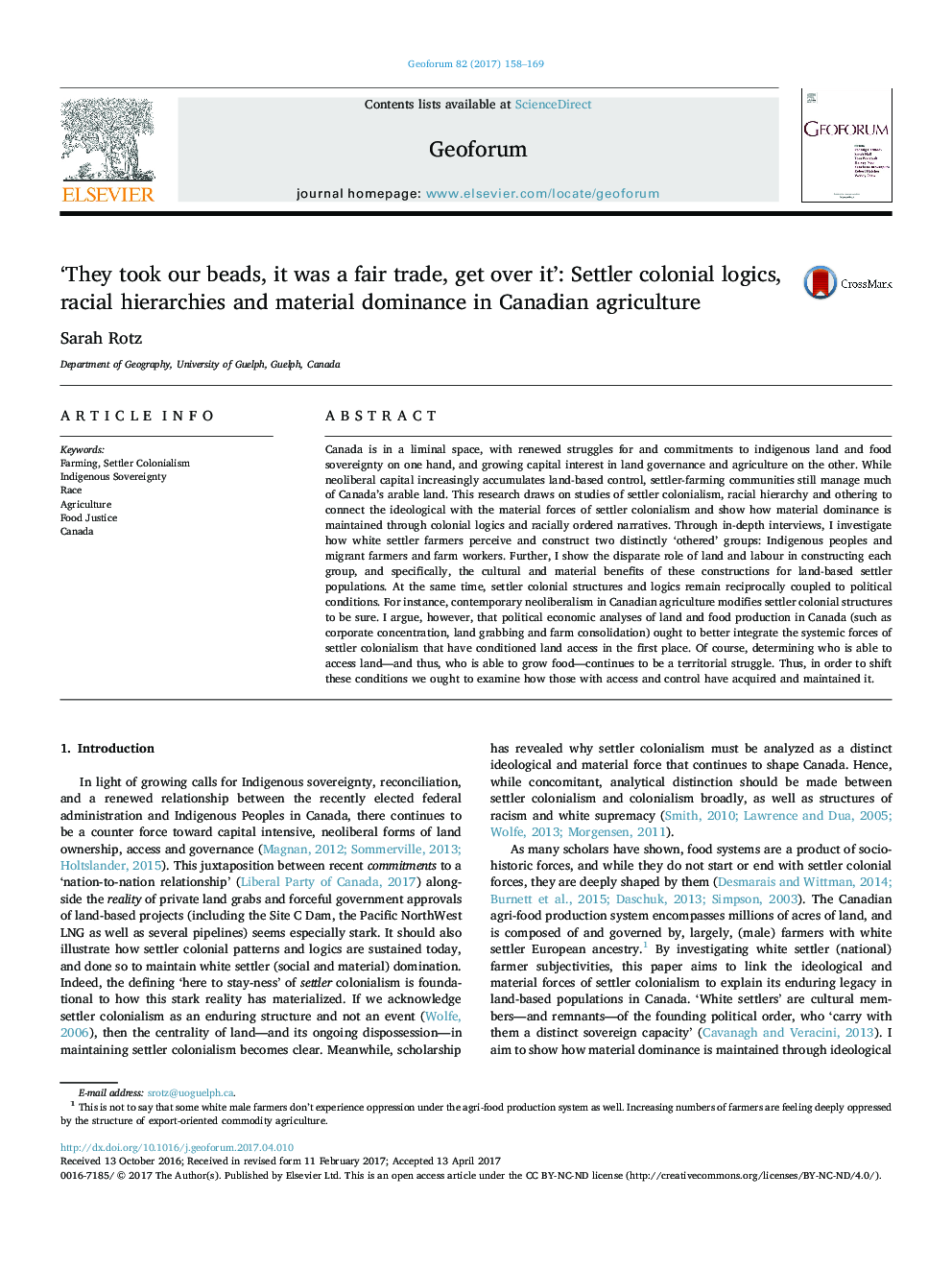| Article ID | Journal | Published Year | Pages | File Type |
|---|---|---|---|---|
| 5073327 | Geoforum | 2017 | 12 Pages |
Abstract
Canada is in a liminal space, with renewed struggles for and commitments to indigenous land and food sovereignty on one hand, and growing capital interest in land governance and agriculture on the other. While neoliberal capital increasingly accumulates land-based control, settler-farming communities still manage much of Canada's arable land. This research draws on studies of settler colonialism, racial hierarchy and othering to connect the ideological with the material forces of settler colonialism and show how material dominance is maintained through colonial logics and racially ordered narratives. Through in-depth interviews, I investigate how white settler farmers perceive and construct two distinctly 'othered' groups: Indigenous peoples and migrant farmers and farm workers. Further, I show the disparate role of land and labour in constructing each group, and specifically, the cultural and material benefits of these constructions for land-based settler populations. At the same time, settler colonial structures and logics remain reciprocally coupled to political conditions. For instance, contemporary neoliberalism in Canadian agriculture modifies settler colonial structures to be sure. I argue, however, that political economic analyses of land and food production in Canada (such as corporate concentration, land grabbing and farm consolidation) ought to better integrate the systemic forces of settler colonialism that have conditioned land access in the first place. Of course, determining who is able to access land-and thus, who is able to grow food-continues to be a territorial struggle. Thus, in order to shift these conditions we ought to examine how those with access and control have acquired and maintained it.
Keywords
Related Topics
Social Sciences and Humanities
Economics, Econometrics and Finance
Economics and Econometrics
Authors
Sarah Rotz,
